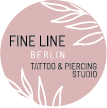What is a Tattoo?
A tattoo is an image, pattern or text that is engraved into the skin with ink. It is a form of body art that often has a personal meaning or aesthetic value for the wearer.
How does tattooing work?
In tattooing, a needle is used to inject dyes into the skin layer.
Does it hurt to get a Tattoo?
The sensation of pain is subjective and varies from person to person. Most people experience tattooing as a slight scratching or burning sensation. The sensation also depends very much on the part of the body, the size of the tattoo and the form of the day (getting a good night’s sleep, eating and drinking enough, no drugs or alcohol).
Is tattooing safe?
In professional studios with trained tattoo artists and hygienic standards, the risk of infection is minimal. It is important to choose a reputable studio that uses clean tools and sterile techniques to minimize the risk of complications.
How long does it take for a Tattoo to heal?
The healing time varies depending on the size and complexity of the tattoo as well as individual factors such as the health of the skin. It usually takes 12 weeks for the final result to show under the skin, after about 2-4 weeks the skin is healed on the surface.
How long does a Tattoo last?
The lifetime of a tattoo depends on various factors, including the quality of the ink, the care of the skin and exposure to sunlight. However, a tattoo will usually remain visible for many years, although it may fade over time.
Are there any health risks associated with a Tattoo?
Although most tattoos are safe, there are some potential risks such as infection, allergic reactions to the ink or skin irritation. Adhering to strict hygiene standards and choosing an experienced tattoo artist can minimize the risk.
Can I get a Tattoo if I am pregnant or breastfeeding?
It is recommended not to get tattoos while pregnant or breastfeeding, as this can pose potential risks to the unborn child or breastfed baby. It is best to wait until after pregnancy to get a tattoo.
What kind of care does a freshly done Tattoo need?
Caring for a freshly engraved tattoo is crucial for quick and proper healing. This includes applying special ointments or creams to moisturize and protect from sunlight and excessive friction.
Can I have an existing Tattoo covered up?
Yes, an existing tattoo can often be covered up by a new design, either completely or partially. An experienced tattoo artist can help you design a new tattoo that covers or integrates the old tattoo. (Coverup or blastover)
Are there any legal restrictions or age limits for tattooing?
The legal regulations and age restrictions for getting a tattoo vary depending on the country, region and even city. In most countries, you must be at least 18 years old to get a tattoo without parental consent. Some studios may also have their own minimum age guidelines.
Can I get a Tattoo if I have certain medical conditions?
Some medical conditions can increase the risk of complications with tattooing, so it is important to inform your tattooist of any medical history or concerns.
Are there any special preparations I should make before getting a Tattoo?
It is recommended to get enough sleep, eat well and stay hydrated before tattooing to support your general wellbeing. Please also avoid the consumption of alcohol or drugs.
